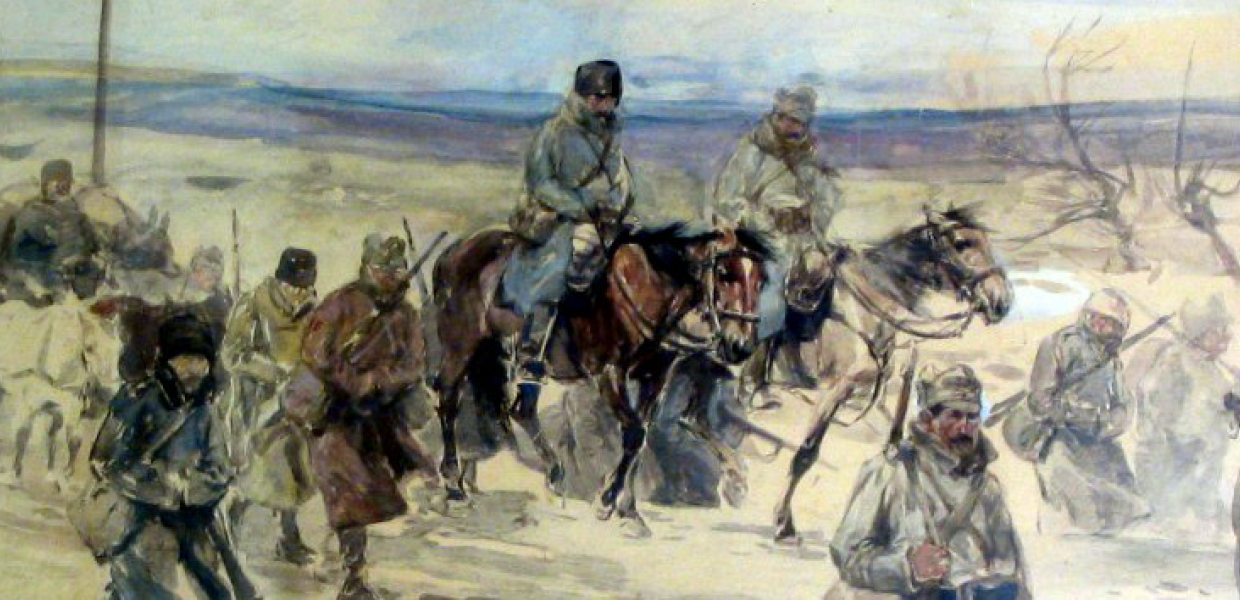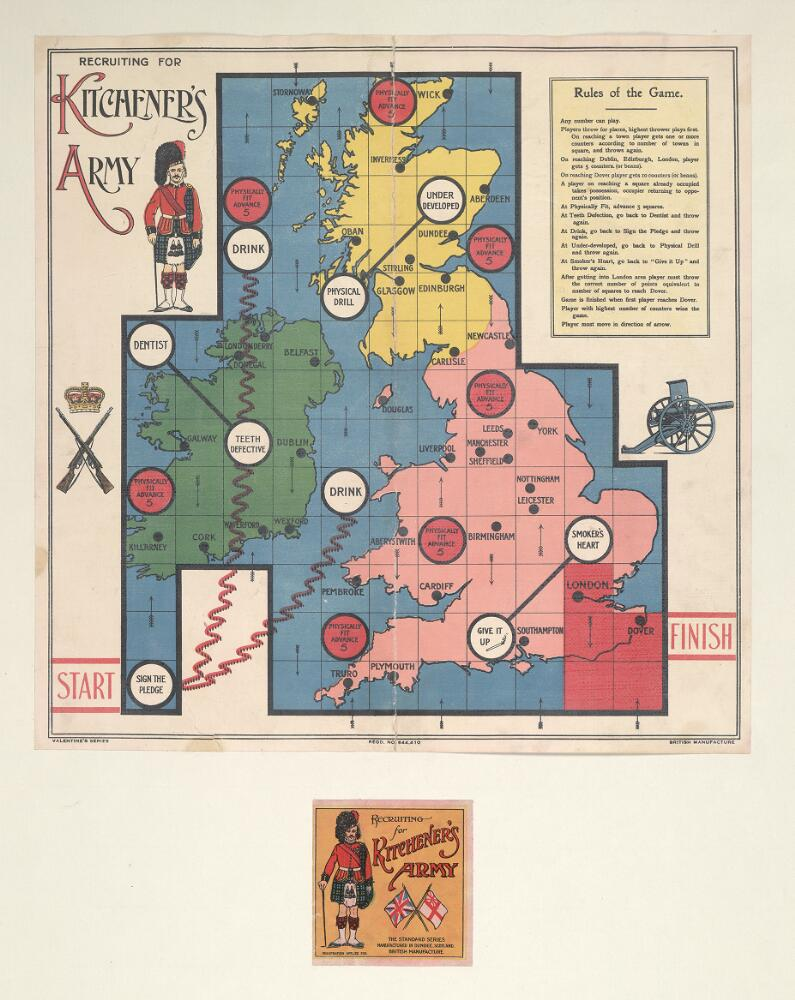Announcing the Winners of the Wikimedia 1914-18 Europeana Challenge
On the occasion of the centenary of WWI and as part of Europeana 1914-1918, we challenged Wikimedia affiliate organisations to create a portfolio of their activities related to 1914-1918. 13 Wikimedia affiliates from across the continent took part in this Wikimedia 1914-18 Europeana Challenge. Each of their portfolios demonstrated the potential of open-access heritage to help understand European history through diverse, innovative and qualitative projects.

- Title:
- Partial reproduction from the painting ‘Retragerea din Dobrogea, Ion Stoica Dumitrescu, 1916, Romanian National Museum of History, Public Domain
- Creator:
- Ion Stoica Dumitrescu
- Date:
- 1916
- Institution:
- Romanian National Museum of History
- Copyright:
- Public Domain
We are now proud to announce the winners:
-
best Partnership project with a Europeana partner - Wikimedians of Romania. Wikimedians of Romania have also been awarded the overall prize for best portfolio in this challenge.
-
most Innovative project - Wikimedia Austria;
-
most Diverse portfolio of projects - Wikimedia UK;
-
highest Quality produced - Wikimedia Norway;
Special mentions also went to Wikimedia Estonia for its innovative use of the Wikipedia platform to curate a multilingual virtual art exhibition; to Wikimedia Italy for the quality and diversity of the content produced; and to Wikimedia Switzerland for its detailed and beautifully produced portfolio.
Best Partnership project with a Europeana partner: Wikimedians of Romania
The Romanian Wikimedia community ran a Wikisource/Transcribathon project; uploaded Wikimedia Commons from Europeana 1914-18 crowdsourced material; and contributed their own material to the Europeana 1914-18 platform. They also entered the Europeana Transcribathon as a 'team'; and improved the categorisation and Wikipedia usage of Europeana 1914-18 material which had already been shared. This impressive portfolio was created by an entirely volunteer team.
Măcreanu Iulian, Coordinator of the Wikimedians of Romania portfolio, said: 'We have been working for more than three years on developing a project dedicated to the participation of Romania in the First World War. [With this competition] we discovered that Europeana had a huge amount of valuable resources that we could easily use and bring to a new level. We learnt that it was easy to develop similar projects both on Wikipedia and Europeana, as they are very complementary.'
Most Innovative project: Wikimedia Austria
Coming first in the ‘most innovative project’ category is Wikimedia Austria’s portfolio. Based on a partnership with the education sector, it highlights the use of various media to investigate propaganda.
Beppo Stuhl from the Wikimedia Austria Board of Trustees explained: ‘We felt we could provide a new point of view to the centenary of WWI in writing articles in Wikiversity and Wikipedia about the media and items collected during Europeana 1914-1918 campaign. To get new insights, we partnered with different institutions including museums, libraries and archives as well as the University of Vienna. We conducted several university courses dedicated to this topic and will continue the series up to 2018.’
Most diverse portfolio of projects: Wikimedia UK

Game entitled Recruiting for Kitchener's army, Created in Dundee by 'Valentines' (1920). Bodleian Library collection
The prize for the widest diversity of content was awarded to Wikimedia UK’s portfolio which contained projects relating to many different cultural institutions; pertained to multiple countries (England, Wales, Scotland, India, and Canada); and included multiple media forms.
Richard Nevell, Project Coordinator for Wikimedia UK, stated ‘Wikimedia UK has been running events around the commemoration of WWI for years. The challenge was an opportunity to bring those various projects together and showcase the work we’ve been doing with our partners. We’re proud of how we’ve been able to work with the likes of Bodleian Libraries and the University of Edinburgh to shine a light on aspects of the war which don’t get as much attention.’
Highest Quality produced: Wikimedia Norway
The jury noted that Wikimedia Norway’s portfolio showed direct engagement with Europeana content (especially through the Transcribathon platform), extensive outreach to partners, and hosting of events.
Astrid Carlsen, Executive Director of Wikimedia Norway, said that this project has led them towards further cultural partnerships: ‘We now have experience on transcribing projects, and we are looking into working further with GLAMs and our communities on the topic of 1914-1918.We are currently applying for funding from The Arts Council to run a project aiming to transcribe handwritten descriptions of images from Armenia from around 1915.'
The Wikimedia 1914-18 Europeana Challenge was part of Europeana’s long-term strategy to engage the Wikimedia community and integrate Wikimedia content into all our major projects. Europeana would like to thank all 13 participating affiliates and looks forward to working together on future campaigns.


